2013 in Review: The State of Narrative in Games
Pete Davison and Jeremy Parish look back at the ways this year's games succeeded and failed at telling great stories.
This article first appeared on USgamer, a partner publication of VG247. Some content, such as this article, has been migrated to VG247 for posterity after USgamer's closure - but it has not been edited or further vetted by the VG247 team.
As video game technology has improved, we've seen examples of game makers getting more and more ambitious with the stories they want to tell. Triple-A video games now rival the biggest blockbuster movies in terms of budget and production values -- but are we getting better stories out of these improvements?
Pete Davison: The concept and use of narrative in games seems to be one of those things that no one can agree on. There are some who still enjoy the traditional "story as reward" approach favored by the most linear experiences out there, while others enjoy branching narratives with a variety of different conclusions, and others still are firmly in favor of completely abandoning pre-scripted stories in favor of the emergent narrative a player creates through their actions.
Personally, I'm someone who enjoys a good pre-scripted narrative, and I feel I've been well catered to over the years. Triple-A games tend to take a more linear approach to their stories -- though there are exceptions, of course -- and focus on providing spectacular set-pieces comparable to blockbuster movies. At the other end of the spectrum, though, the low-budget Japanese RPGs and visual novels that I've found myself enjoying in recent years have also provided entertaining stories with the bare minimum of technology -- and I've been really fascinated to see how indie developers have approached the concept of video games as a medium of delivering a story rather than attempting to be "fun."
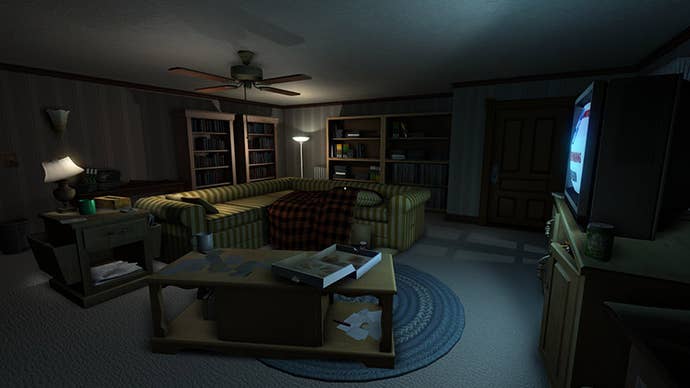
There seems to be a widespread perception that there's not a lot of good writing in games and for sure there's a lot of titles out there whose stories don't stand up to in-depth analysis and criticism. But at the same time, there's also an awful lot of thought-provoking titles that aim to make use of the interactive medium to tell stories in a variety of interesting ways. What are some particular highlights (and/or lowlights) of the past year for you?
Jeremy Parish: Highlights? Honestly, I can't think of too many. The unhappy truth of 2013 is that I didn't have the opportunity to play many games with good narratives. I think we can chalk that up to the fact that I didn't play many indie games, mostly just products from larger publishers. And what 2013 taught me is that big-budget games have become disastrous for trying to tell a good story.
People toss around the term "ludonarrative dissonance" a lot these days; it's a fluffy way to say "the story and the game don't match up." I think the first time I really noticed this problem was in playing Grand Theft Auto: San Andreas. I was placed in the shoes of CJ, a hardened but likeable street tough from GTA's version of Compton -- the first GTA protagonist with whom I could actually sympathize. But then I'd be forced to do things like chase down a gay man and kill him (because he was gay, and stereotypically so), shoot up a bunch of Army reservists doing their weekend's public service, or bomb GTA's version of the Hoover Dam. Those occasional exercises in excess really grated on me. GTA IV was even worse -- Nico Bellic whined to no end about how he wanted to get out of the killing business, but the game constantly forced me into shootouts. Then on occasion you'd have a mission where it was a big deal about whether or not to spare someone's life -- because apparently you can still consider yourself not a murderer as long as you don't kill anyone who’s actually named in the game's script. Morality as defined by SAG, I guess. With this year's GTA V, I quit paying attention to the story as soon as they let me. I wanted nothing whatsoever to do with the game's miserable trio of protagonist. GTA V is lovely to look at, but its narrative is just the worst.
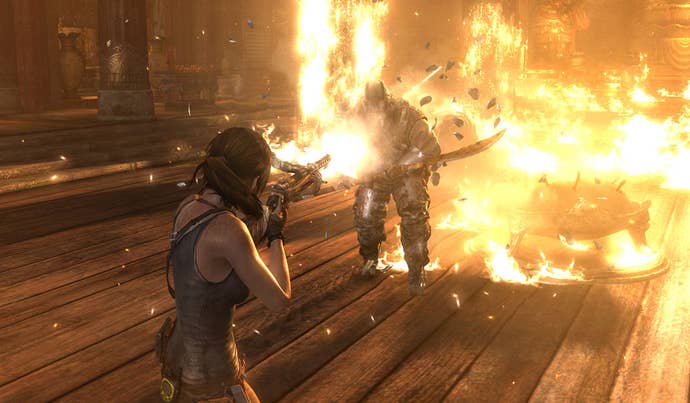
Meanwhile, I could tell Tomb Raider wouldn't live up to its promise of presenting a bracingly realistic origin story for Lara Croft as soon as I played beyond the points where she makes her first kills. She trembles with remorse at killing a deer for survival, and she practically retches after protecting herself from a murderer with desperate, lethal force. But right away, she's plunking arrows into wildlife and gunning down squads of heavily armed thugs without blinking. The game goes to painstaking lengths to keep track of every cut and scrape that Lara picks up in the course of her adventure, provided she suffers them in a cutscene; the bullets and machete wounds and falling damage she incurs during the player-controlled sequences magically heal on their own. Even The Last of Us, intelligently as it handled its marriage of mechanics and plot, had moments where the disconnect between the two was jarring. How come enemies could hear the slightest noise you'd make, but totally ignored your partner character shouting to you?
The answer, of course, is because the needs of good gameplay demand these compromises. You need to hear the sounds and comments your partners in The Last of Us make in order to be able to work in tandem with them, and the game would suffer if enemies tore them apart whenever they made a peep. Tomb Raider's compromises aren't quite as easy to forgive, since I'm not convinced the decision to turn the series into a cover-based shooter was a particularly smart one; but for the kind of game Crystal Dynamics wanted to create, that sort of abstraction of injuries keeps things brisk and manageable. BioShock Infinite turned out to be a decent shooter set in a beautiful world that made its nature as a mere decent shooter all the more disappointing -- and at the same time, that shootery nature meant Irrational couldn't invest any real depth or interactivity into Columbia, as players are constantly advancing to the next area for the next shootout. For all its promise, Infinite turned out to be a pretty skin and interesting story stretched over a bog-standard FPS.
The beautiful graphics and top-notch voice acting made possible by big budgets come with a tragically Faustian price: They have to recoup those hefty investments, which means they have to play and unfold in a way that the most consumers imaginable will enjoy. AAA games have fallen into an inextricably deep rut as a result, with the best of game design intentions ultimately being corralled into a handful of sure-fire, focus-tested formulas. Be that as it may, what this means for developers with ambitions to become world-class storytellers is that they're trying to muscle a possibly interesting, theoretically compelling, potentially moving tale into a format designed for the primary purpose of making males 13-35 feel empowered by letting them breezily kill thousands of dudes/zombies/robots/whatever. There's a place for that kind of game action, just as there's a place for the tale of a young woman's coming of age or a man working through his past sins. But as we've seen this year, those places generally aren't one and the same.
That's why it's such a bummer I didn't get to play more indie games in 2013, as smaller-scale games come into being without a publisher breathing down their necks about budgets and marketability and can therefore adopt a play format that complements their creators' storytelling ambitions.

Pete: I concur. I must confess to having drifted away from a lot of triple-A titles in recent years for precisely the reasons you outline above: the dissonance between the stories the creators clearly wanted to tell, and the stuff that felt like it was put in there to make it "a better game," for want of a better term.
Indie stuff is absolutely where the exciting storytelling is happening. And it's not just about linear narratives, either; there's some genuinely cool experimental stuff going on in titles such as The Stanley Parable, for example, which initially appears to be a bit of a one-trick pony ("you can disobey the narrator!") but subsequently proves itself to have a lot of very clever ideas with regards to things like free will and, indeed, ludonarrative dissonance.
On a similar but simultaneously different note, Gone Home managed to tell several stories in parallel with one another through a combination of BioShock-style audio logs and much more subtle environmental cues -- the latter of which I found far more interesting and compelling to discover for myself. The bottle of scotch hidden on top of the father's bookcase; discarded letters in the trash can; the rooms that had seemingly been left abandoned. A lot of this stuff wasn't made explicit or signposted, but that made it all the more rewarding to discover.
I think part of the reason indie developers are doing much better at this sort of thing is because, as you say, their games are designed primarily as creative works rather than commercially viable products. An indie developer making a story-centric game isn't necessarily concerned with innovative game mechanics or, I don't know, being the next big thing for Let's Players or streamers to show their skills in; instead, they more often start from the perspective of wanting to say something, and making use of the interactive medium as a way of saying it in an interesting way.
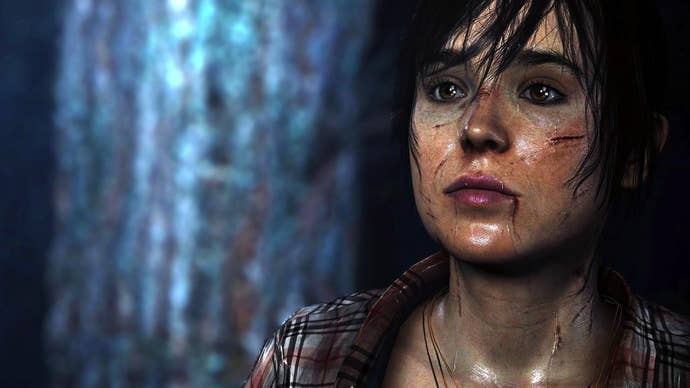
I find it baffling that the big publishers are thoroughly stuck in the blockbuster mindset when there's a proven market for smaller, more thought-provoking entertainment; I wonder if we'll see a change in attitudes in the near future, or whether there'll continue to be this clear divide?
Jeremy: Well, retail niche games are basically victims of their publishers' success. Once you start producing games that sell millions, the little speciality games that sell five-digit figures become a lot more trouble than they're worth. Publishing a game through traditional channels comes with a lot of overhead, and the big publishers are tightening their budgets by focusing on a smaller collection of big-ticket titles and low-effort mobile games. Sony and Nintendo are kind of the exception since they own their own platforms and can afford to dick around with niche games. But for the most part, the publishing side of games has totally stratified into companies gunning for million-plus sellers exclusively, and little guys who wouldn’t know what to do if any of their games cracked six digits. Basically, niche games generally only come from companies whose entire business is built around more modest expectations, be it small third-party licensors like Xseed or totally independent developers.
Obviously, this means you're not going to see a lot of risk-taking in bigger games, the same way that Hollywood blockbusters are formulaic to a fault. You can blame the American way of life, if you like it -- we demand buffet-style value for everything. Impress us, but don't expect us to pay much for the privilege, and it's OK if everything turns out bland as a result.
It's a shame, because video games as a medium have so much storytelling potential. I've been replaying Super Metroid lately, and in many ways its approach to narrative -- which was completely wordless after the opening cut scene -- remains the gold standard, and I wouldn't be surprised to hear the creators of Gone Home were influenced by the way Super Metroid built story clues into every aspect of the experience, from background graphics to incidental sound effects. Or rather, a gold standard; games as a whole are wonderfully diverse, so there's no need to pigeonhole how they tell stories. Hollywood-style bombast is every bit as valid as a subtle indie game or a text-driven RPG.
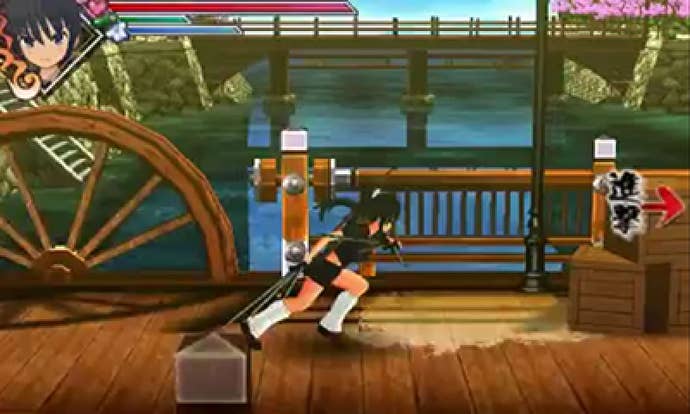
But somewhere along the way, everyone involved needs to stop and ask themselves, "Is this kind of game really the best vehicle for telling the cool story I have in my head?" Often, the answer is "no," and when they try to slam together those incompatible concepts anyway the results don't do either aspect of their game any favors.
Pete: This is why I find visual novels so interesting. These are interactive stories that, in most cases, abandon all pretense of being "games" with rules and systems to learn, and instead make use of computer, console and handheld platforms as a simple means of telling a story through multimedia -- text, speech, graphics, animation.
You get rare exceptions where developers put some "game" in there too -- the Zero Escape series is a good example where the puzzles are fairly well-integrated into the narrative -- but for the most part, a good visual novel doesn't need rules and systems to be compelling, just a good story. And there are plenty of good ones out there if you look for them, from both Eastern and Western developers.
I've been pleased to see that the concept of the "story game" has branched out from the largely text-centric visual novel medium over time, though, and this year has been particularly good for this type of game in general.
As an example of the concept, I know David Cage's work isn't to everyone's taste, but his games are proof that an interactive experience where the narrative comes first, gameplay second can work really well; likewise for Telltale's recent output such as The Walking Dead and The Wolf Among Us. In both those cases, we're following a linear narrative, but often the simple fact that we have to physically do something in order to make the story proceed can add an interesting extra layer of immersion to the experience.
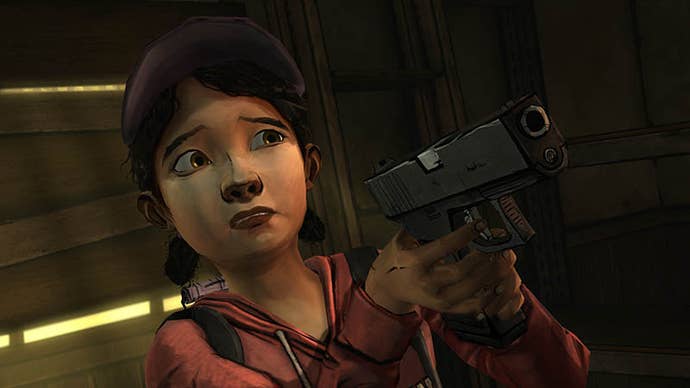
There's a variety of approaches you can take with involving a player in a story, though, with some developers preferring to follow the old writer's axiom of "show, don't tell" rather than settling for largely non-interactive novel-style presentation with occasional branch points. The rise of games like Dear Esther and The Stanley Parable leave a lot of things open to interpretation; Thatgamecompany's titles Flower and Journey are even more abstract, with absolutely nothing made explicit to the player at all. All are valid approaches; not everything appeals to everyone, sure, but then what single piece of media does appeal to everyone universally?
Another great thing that has happened in the last year or so is the rise in prominence and awareness of affordable or even free tools eminently suited to making story-based games -- RPG Maker came to Steam; lots of people discovered the HTML-based Twine toolset; and visual novel creator Ren'Py continued to go from strength to strength, with developers like Christine Love showing what it's capable of in games like Hate Plus.
The great thing about all these tools is that they're opening up the world of making games to people who don't necessarily know how to code, but who know how to write. And one of the criticisms people often level at video games is that their stories have traditionally been written by people who, to put it politely, aren't writers first and foremost. While easy access to tools does, of course, mean a rise in amateurs trying their hand at making games and churning out disposable, low-quality titles, it also provides the potential for the next sleeper hit to emerge from a brilliant writer who wanted to make an interactive story, but didn't have the first clue about how to even pronounce "C#."
Jeremy: I hear you on visual novels, but I've yet to find cause to give myself wholeheartedly to that genre. The problem I have with visual novels is that they abandon nearly everything that typically defines a video game in order to tell a story -- which is fine, that's what the genre says on the label. But if you're going to be a book with some interactive bits grafted on, you need be as good a read as a book... and unfortunately, I've never played one that I feel quite reaches that goal. I can see why people enjoy them, but I don't think they're really for me.

Japanese visual novels have a double hurdle to clear, too. Not only does the source text need to be strong, the English translation and localization also need to be up to snuff. And both versions of the text need to jive; there's a tendency among localizers to throw in jokes or change the nature of characters and story points. That works in games with simpler text, but it's pretty destructive in a game that pivots entirely around its story.
I hate to even be critical about this, because I'm a writer by trade, and I'm not really comfortable calling out other writers over matters of taste. Fiction is hard! I write a lot, and I feel like I'm pretty decent at it, but man does my fiction writing stink. It seems I was born to be a mouthy pundit, not a master of prose.
Still, I think where we can both agree is that if you want a great story in a video game, you're not going to find it in something on the racks at Walmart. (Well, unless they have a copy of The Walking Dead in stock.) The resource demands and audience expectations weighing on big-budget retail games makes them antithetical to great storytelling, no matter how noble their creators' intents. Triple-A shooters just aren't the proper vehicle to convey anything particularly weighty without goofily undermining the message in the process. And that's fine; I don't go to see Marvel Comics movies to have my moral assumptions and ethical boundaries questioned, either. I just wish there were more room at the top for the games that can properly explore those themes.
Pete: I think that's something we can both agree on, for sure.

